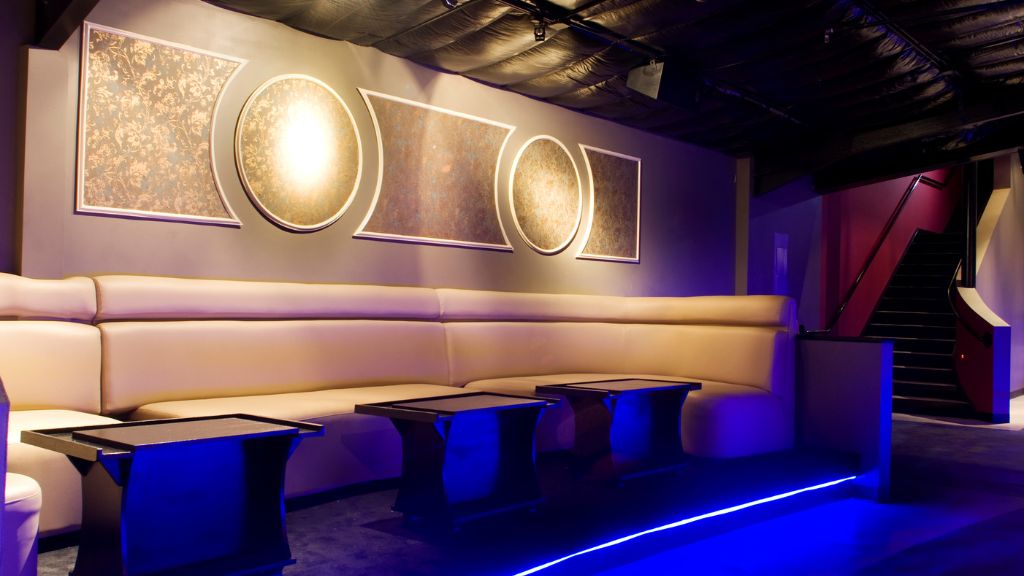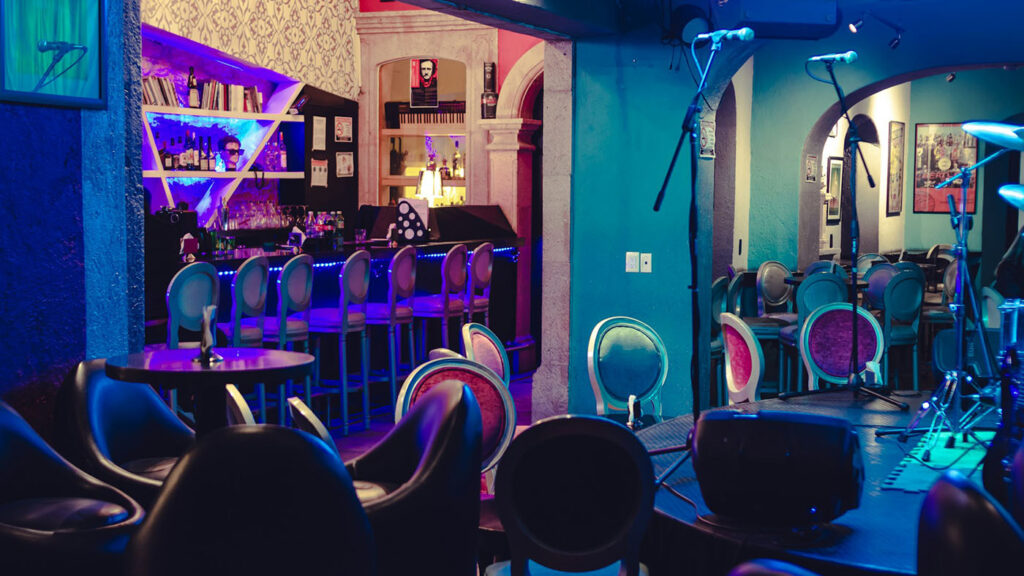Estimated reading time: 8 minutes
Table of contents
Cliff Notes: Applying for a Massachusetts cannabis lounge license
Objective: Understanding the legal landscape to successfully open a Massachusetts cannabis lounge after obtaining a license
Key Components:
- Legal Status: Cannabis social consumption was approved in Massachusetts in 2016 but only formalized through licensing in 2022. Final rules are expected by mid-2025.
- License Types: CCC will offer Supplemental (for existing retailers), Hospitality (new venues), and Event Organizer licenses.
- Application Steps: Includes municipal approval (like an HCA), state application through MassCIP, floor plans, SOPs, and final inspection.
- Requirements: No one under 21, no alcohol, strong ventilation systems, detailed patron logs, and separate smoking areas.
- Challenges: Local bans, curfews, high compliance standards, and new rule interpretation. CCC suggests lounge closure by 2:00 AM.
Catalyst BC’s Massachusetts cannabis consultants help applicants navigate community approvals, CCC licensing, and compliance. Learn more about our Massachusetts cannabis consulting services or Book your Complimentary Consultation today.

Introduction
Massachusetts law has long envisioned cannabis social lounges, and regulators are now finalizing rules. The 2016 ballot measure legalized “social consumption” (as in venues akin to bars), but formal licensing only gained traction in 2022. The Cannabis Control Commission (CCC) is currently rolling out three new license categories: Supplemental, Hospitality, and Event Organizer licenses for consumption.
Under CCC proposals, licensed retailers and microbusinesses can add a “supplemental” consumption area; new venues (Hospitals or restaurants without a dispensary) can obtain a consumption license; and existing licensees can host 4-day events with an event organizer permit. The regulatory process involved public comment (completed January 2025) and is expected to result in final rules by mid-2025.
Licensing Pathway
Launching a cannabis lounge in Massachusetts requires more than just a great idea—it involves navigating a complex regulatory system at both the municipal and state levels. With the Cannabis Control Commission (CCC) finalizing rules in 2025, now is the time to get prepared. Whether you’re an existing license holder or a new hospitality operator, understanding the specific steps involved will set you up for success. Below is a breakdown of the expected licensing pathway to open a compliant cannabis lounge in Massachusetts.
1. Municipal Endorsement
First, secure your city/town’s approval. Massachusetts requires a “Local Approval” (similar to a Host Community Agreement) before the state issues any consumption license. This typically means demonstrating compliance with local zoning (e.g. distance from schools) and community support.
2. State Application
Once draft regs are finalized, apply through MassCIP (the state’s application portal) for the appropriate license type. Fees will likely include a $1,500 application fee and a $10,000 initial license fee (according to proposals). Eligibility: At least 21 years old, no disqualifying criminal record, and for Supplemental/Hospitality licenses, an existing Massachusetts cannabis license or partnership.
3. Documentation
Provide detailed floor plans showing the consumption area (must have separate ventilation if smoking), Standard Operating Procedures (e.g. managing custody of customer’s cannabis, emergency protocols), and proof of municipal approval. Also include safety/educational signage plans as required by 935 CMR 500 (MA cannabis regs).
4. Inspection and Issuance
After submission, the CCC will inspect the site for compliance (security cameras, RFID tracking, etc.). If approved, you will receive a consumption license with specific conditions (no underage entry, no outside alcohol, etc.).
Operating Requirements
Massachusetts will treat a cannabis lounge like any other cannabis establishment with extra rules. Expect to
- Prohibit anyone under 21, implement staff training on intoxication response, and enforce “no re-entry with product” (patrons can’t leave with unfinished cannabis).
- Ventilation is crucial: CCC materials suggest having a fully separate smoking room with HEPA filters and exhaust fans to clear odor.
- Lounges must keep detailed logs of patrons (time in/out) and purchases (even though no sales on site) for traceability.
- Food service can be provided, but infused foods are not allowed unless you also hold a food license under Department of Public Health rules.
- Music and events are allowed, but no dancing if smoking – similar to how bars operate.
Compliance Challenges
- Because regs are new, stay alert for changes. For instance, communities can cap the number of lounges, ban them outright, or impose curfews.
- The CCC draft rules suggest lounges close by 2:00 AM. Fines for non-compliance can be severe – Massachusetts imposes penalties for over-serving, failing to card, or unauthorized sales.
- Consult local building/fire codes early (some cities require additional sprinkler systems for smoking areas).
Why Hire a Cannabis Consultant?
Opening a Massachusetts cannabis lounge is an exciting opportunity—but it’s not without its challenges. From securing local approval to meeting state compliance standards, one missed detail could cost you time, money, or your license. That’s where Catalyst BC comes in. Our expert cannabis consultants have deep experience guiding operators through the evolving regulatory landscape in Massachusetts. We handle everything from HCA negotiations and zoning to application support, compliance readiness, and operational planning.
With Catalyst BC by your side, you gain a strategic partner committed to your success—helping you launch faster, stay compliant, and create a cannabis lounge that’s both safe and profitable.
Learn more about our Massachusetts cannabis consulting services or Book your Complimentary Consultation today.
Massachusetts Cannabis Lounge FAQs
The CCC plans to open applications after finalizing regulations (currently under review). Likely mid-2025 is the earliest. Watch masscannabiscontrol.com for announcements.
Massachusetts will have: Supplemental (for existing dispensaries/microbusinesses to add consumption), Hospitality (for new venues hosting events), and Event Organizer (for temporary events).
Possibly under the Hospitality license. They may need an existing cannabis partner or food/bev license too. Lawmakers are exploring allowing lounges to serve cannabis-infused foods, but initial regs focus on simple snacks and non-infused menus.
Draft rules indicate ~$1,500 application fee and $10,000 license fee. (Fees subject to final CCC approval.) Be prepared to pay renewal fees as well. Our Massachusetts cannabis consulting team can provide more precise estimates.
You’ll need a special permit or similar municipal approval to allow cannabis use on premises. Communities may charge local fees or require hearing. If your town bans lounges, applications can be rejected. Our Massachusetts cannabis consulting team can guide you through community outreach strategies and presentation of your plans to local officials.
No. Massachusetts explicitly prohibits mixing alcohol and cannabis use. No liquor license holder can serve alcohol and cannabis simultaneously.
No – lounges do not sell marijuana products. Patrons must purchase from a dispensary beforehand. This is similar to how cannabis cafes in other states operate.
Staff must inspect all cannabis brought in and ensure it’s from a licensed source (some states require a security locker at entrance). Any unlawful sale or free sample program is illegal.
Yes – lounges typically allow vaping and eating edibles. Just ensure vaping devices meet Massachusetts legal requirements and edibles are from licensed producers.
Yes – Catalyst BC’s Massachusetts cannabis consultants can guide you through HCA negotiations, MassCIP application, and regulatory compliance (including CCC community outreach).
Navigating the Massachusetts cannabis lounge space is complex—one misstep can delay your opening or jeopardize your license. A specialized Cannabis Consultant brings deep regulatory knowledge, operational best practices, and hands-on project management.
From initial concept and licensing to grand opening and ongoing compliance, Catalyst BC’s end-to-end Massachusetts Cannabis Consulting services ensure you launch faster, stay compliant, and maximize profitability.
Additional Resources
Free eBooks For Cannabis Business Success
Explore Our Articles
cannabis applications Cannabis Bar Cannabis Business Optmization cannabis careers Cannabis Compliance Cannabis Consumption Cannabis Consumption Bar Cannabis Inventory Management Systems Cannabis Investors cannabis jobs Cannabis Legalization cannabis licensing Cannabis Lounge cannabis marketing Cannabis Operational Procedures cannabis outreach Cannabis Regulations Cannabis Security Cannabis Software Cannabis Startup Cannabis Supply Chain Cannabis Technology Colorado controlled environment agriculture Cultivation cultivation facility Dispensary Design facility design Financial Planning HVAC HVACD Iowa Kansas Legal Update Legislation Medical Cannabis Minnesota Natural Medicine Nebraska New York Odor Control Oregon Psilocybin Psychedelics Recreational Cannabis
Latest Articles
- Missouri Cannabis Licensing & Business Opportunities 2026Missouri has established itself as the premier success story for cannabis in the Midwest, evolving from a standard medical regime to a high-volume adult-use market that exceeded $1.52 billion in annual sales in 2025. As the market enters the 2026–2027 biennium, the landscape is shifting from rapid expansion toward operational maturation and specialized entry.
- North Carolina Cannabis Licensing & Business Opportunities 2026North Carolina remains one of the final significant jurisdictions in the United States without a comprehensive medical or adult-use cannabis program. However, the 2026–2027 biennium is projected to be the most consequential period in the state’s cannabis history. Driven by the formation of the North Carolina Advisory Council on Cannabis and an impending federal “hemp cliff,” the state is moving from a period of passive prohibition toward a structured, albeit highly restrictive, regulatory framework.
- Nebraska Cannabis Licensing & Business Opportunities 2026Nebraska is entering the 2026–2027 biennium at a historic crossroads. Following the 71% voter approval of Initiatives 437 and 438 in late 2024—the largest margin for a medical cannabis initiative in U.S. history—the state is currently standing up its first regulated medical infrastructure.
- Florida Cannabis Licensing & Business Opportunities 2026Florida represents the most capital-intensive and professionally structured cannabis market in the nation. As of 2026, the state is at a crossroads: it is both expanding its mature medical program and preparing for a potential constitutional shift toward universal adult-use access. On November 3, 2026, Florida voters will decide on the Marijuana Legalization Initiative (Amendment 3). Passing this requires a 60% supermajority—a high threshold, but one that polls suggest is within reach.
- Virginia Cannabis Licensing & Business Opportunities 2026As Virginia transitions from its current “possession-only” model toward a fully regulated retail market, the 2026–2027 biennium represents a once-in-a-generation window for market entry. Unlike the vertically integrated “medical-only” regimes of the past, Virginia’s upcoming framework focuses on decentralization, specifically architected to favor small Virginia-based operators over large multi-state corporations.
- Minnesota Cannabis Licensing & Business Opportunities 2026Minnesota is currently undergoing a transformative shift in its cannabis landscape, moving from a semi-regulated hemp-derived market toward a fully comprehensive adult-use framework. Overseen by the Office of Cannabis Management (OCM), the 2026–2027 biennium represents the critical “enforcement phase” where temporary registrations sunset and permanent, merit-based licenses define the market’s long-term leaders.











